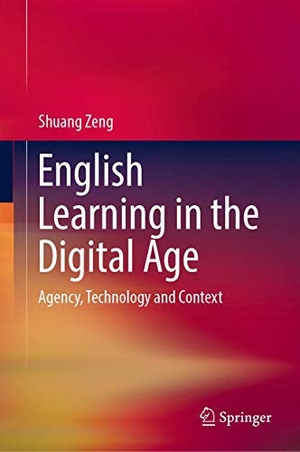Für statistische Zwecke und um bestmögliche Funktionalität zu bieten, speichert diese Website Cookies auf Ihrem Gerät. Das Speichern von Cookies kann in den Browser-Einstellungen deaktiviert werden. Wenn Sie die Website weiter nutzen, stimmen Sie der Verwendung von Cookies zu.
Cookie akzeptieren
- Springer Nature Singapore
- 2018
- Gebunden
- 228 Seiten
- ISBN 9789811324987
Moving beyond the 'Web 2.0' and 'digital native' rhetoric, this book addresses the complex experiences of learners of English as a foreign language (EFL) in a world embedded with interactive and participatory technologies. Adopting a sociocultural perspective, it investigates EFL learners' behaviours concerning digital technology, and guides exploration into their contextually mediated choices and learning practices in the '2.0' era. The argument is developed on the basis of the findings of a mixed sequential study that focused on 1485 Chinese undergraduates' use and non-use of online tools and applications outside the English classroom. Particular attention is paid to the role of context and agency when understanding their learning choices and behaviours in the context of digital technology. In particular, the book acknowledges the explanatory power of agency in the minority instances of 'good practices' among these EFL learners. At the same time it demonstrates that for most learners, use
Mehr
Weniger
zzgl. Versand
in Kürze